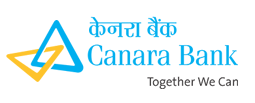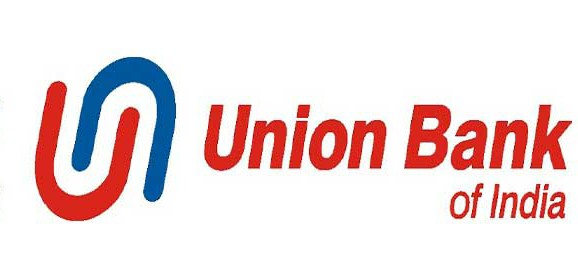Education Loan
Education Loans
Ideally, knowledge should be free, but education is expensive in India and around the world. For example, the course fee for an MBBS student ranges between anything 50,000 to 2 lakhs per annum. For a 5-year course; that amounts to a lot of money that not every student can afford. Fortunately, education loans for undergraduate and post-graduate students in India do cover the cost of education in many instances. Like all loans, education loans come with terms and conditions for repayment, interest rates, associated fees and charges and conditions for eligibility attached. This article aims to shed light on the subject of education loans for Indian students in its entirety; with the objective being to serve as a guide for students opting for post-graduate and undergraduate education loans. Read further to know more.
Definition of Education Loan
By definition, an education loan is a loan taken from a bank strictly for the purpose of covering expenses while pursuing higher studies. These loans are primarily available to students pursuing graduate and post-graduate degrees at educational institutions in India and abroad. Education loans are available with or without collateral and the repayment tenure commences post completion of higher studies. The infographic below effectively illustrates the defining features of education loans for Indian students.
|
Purpose of Loan
|
Repayment Tenure
|
Amount
|
Interest Rates
|
Eligibility
|
|
Strictly for Graduate and Post-Graduate Studies
|
Commences after Course Completion with 6 months to 1 year
|
Unsecured Loan of up to 7.5 Lakhs
|
12% to 16%
|
Graduate and Post-Graduate Students
Co-Applicant Needed
Viable Test Scores Needed
Guarantor May be Needed
Insurance May be Needed
|
Purpose of Loan
A student may apply for a student loan or education loan in India for a vocational course, full-time and part-time courses and graduate and post graduate courses in various disciplines. These loans cover expenses incurred such as hostel fees, tuition and exam fees, study material and other miscellaneous expenditures for the duration of time needed to finish graduate or post-graduate studies. Engineering, medical school, MBA courses, architecture, hotel management, and various other technical courses are prime examples of higher education disciplines covered by education loans from Indian banks.
Amount
Based on the fee structure, a student may apply for an appropriate amount of funds in student loans. The bank then dispenses the loan to the appropriate educational institution after having reviewed said institution’s fee structure and the admission letter of the educational institution, which is submitted to the bank by the student borrower. This amount may range from 4 lakhs to 30 lakhs or even more, varying from bank to bank. For large education loans, a student may often have to seek out a financial aid package from an appropriate bank with higher student lending limits.
Lending Requirements
Lending requirements for education loans by Indian banks differ. However, certain norms apply to almost all banks. Students are required to cover a minimum of 5% of education expenses while studying in institutes of higher learning within the country. Students studying abroad must self-finance 15% of education expense in its entirety. For educations loans of up to 4 lakhs, a third-party guarantor is not required. For anything above 4 lakhs, Indian banks require a guarantor. Collateral free education loans are limited to loans below 7.5 lakhs, anything above this amount is only dispensed as a secured loan wherein the borrower must pledge collateral to acquire the loan amount. A co-applicant is mandatory when applying for education loans. The co-applicant may be the spouse, parents or in-laws of the primary borrower or student for whom the loan is intended. All banks require co-applicants for student loans of any amount in India.
Repayment Tenure
The repayment tenure for education loans commences 6 months to 1 year after a student has acquired his or her degree. This gives the student a reasonable amount of time to enter the job market and make an earning that facilitates the repayment of the education loan. In some cases, banks may extend the repayment tenure to 5 or 6 years. An education loan is repaid in EMIs over a period of time. The number of installments mainly depend on bank terms and conditions, loan amount, and income of the borrower.
Interest Rates on Education Loans
The interest rates on loans for higher education in India vary from 10% to 16% on average and largely depends on the lender and stipulated lending rates. A wide range of public and private sector banks in India deal in education loan packages and the general consensus is that public sector banks often offer lower interest rates on loans further education. However, students may often have to turn to private banks for bigger loans for studies abroad and often these banks charge higher interest rates. Often there is a processing fee charged on the loan which is anything from 1% to 1.5% of the total loan secured.
Loan Coverage
Education loans cover a wide range of expenses related to education for students who choose to study in India and abroad. These expenses account for...
- Tuition fees
- Study Material
- Accommodation Costs
- Exams and Library Fees
- Travel Expenses for Students Studying Abroad
- Miscellaneous Expenses
Courses Covered
Education loans are a means to cover the expenses of a wide range of higher education courses including but not limited to...
- Graduate and Post-Graduate Course from accredited colleges and universities in India and abroad.
- Diploma and Degree Course offered by autonomous institutions in India, such as IIT and IIM.
- Fine Arts, Medicine, Engineering, Architecture, Agriculture, Management, Computer Science and Hotel and Hospitality courses in India and abroad.
- Fashion design, interior design, and textile design courses.
- Teachers Training, Nursing, Aviation, and other vocational courses.
Eligibility
Since educational loans are mainly for those pursuing post graduate and graduate level courses, school leaving certification acquired by passing school leaving exams are required. In other words, a student must be able to furnish class 10 and 12 board exam results and marksheets. Indian citizenship is compulsory and the student must possess an admission letter from an accredited college or university in India or abroad, in most cases. The co-applicant must be salaried or employed and income proofs such as salary slips and IT return documentation of the co-applicant is often requested by the bank. As mentioned before, for loans above 7.5 lakhs a guarantor is mandatory, for most banks offering education loans.
Bearing all of the above information in mind, it is easy to see how education loans are an ingenious way to cover the cost of expensive higher education. These loans are available to aspirants for higher education in India. Taking into consideration that repayment tenure for these loans begins after completion of higher education, education loans make repayment of large loan amounts easier when former students finally enter the job arena.
Process
1% to 1.5% of the total loan secured
| Bank | Interest Rate | Minimum Age (in yrs.) | Minimum Income (in Rs.) |
|---|---|---|---|
 State Bank Of India |
11.75% to 13.50% p.a; 0.5% concession for girls | Co-Aaplicants should meet the age criteria | Co-Applicants Minimum Net Monthly Income will be considered |
 Bank of Baroda |
12% to 12.75% per annum; 0.5% concession for girls | Co-Applicants and Students Age will be considered | Co-Applicant Income will be considered |
 Canara Bank |
10.25%-12.5% | Co-Applicants and Students Age will be considered | Co-Applicant Income will be considered |
 Punjab National Bank |
12.75% to 14.25% per annum | Co-Applicants and Students Age will be considered | Co-Applicant Income will be considered |
 Union Bank of India |
11.05 % , For Girls - 10.55% | ||
 Axis Bank Limited |
13.25% to 15.20% | No Age Criteria Provided | Income Criteria Not Available |
 HDFC Bank Limited |
Information not available | 16 - 35 yrs | Income Criteria Not Available |
 Industrial Development Bank of India (IDBI) |
12.5%-13.5% | Co-Applicants and Students Age will be considered | Co-Applicant Income will be considered |
If a student wants to apply for an educational loan, then he/she needs to be eligible as per the following criteria's:
- The students must be an Indian national
- The students ought to have a confirmed admission in the college at the time when he/she makes an application for a loan from the bank.
- The age of the student must in the range of 16-35 years.
- The student should have a guarantor.
- The student must have a fixed deposit in the bank. The collateral must be more than 4 lakh INR.
During the application of educational loan from the bank, the bank would ask for the following documents:
- Confirmation letter of admission
- A detailed schedule of expenses to be carried
- Scorecard of the qualifying exam
- Copy of student visa if the student is going for education abroad
- Statements of bank accounts
- Age proof
- Residence Proof
- Passport sized photographs
- Documents concerning collaterals
The following expenses are taken care of in an educational loan availed by any student from the banks:
- Tuition fees
- Hostel expenses
- Examination and laboratory fees
- Refundable caution money
- Cost of books and study materials
- Travel expenses in case of foreign education
If you are a student who wishes to go for higher studies in India, then you can avail educational loan from 10 Lakhs INR to 15 Lakhs INR. In case you want to for higher studies in any foreign nation, then you can avail the educational loan in between 20-30 Lakhs INR. The banks can also provide a higher amount of loans to students, but they would also need equivalent collaterals.
The average duration of repayment of educational loan is 5-7 years. You can also get an extended period of repayment from a particular financial institution for 15 years in case of a higher amount of loan.
The need for collaterals depends solely upon the financial institution. The general requirement of collateral is mentioned below:
- No collaterals and third party guarantee are required for loans up to 4 Lakhs INR
- No collaterals but a third party guarantee are required for loans in the range of 4 Lakhs to 7.5 Lakhs INR
- Collaterals are required for loans higher than 7.5 Lakhs.
In the course of verification of providing educational loans to the applicants, the bank may perform employment verification. The confirmation is done in regards to the employment of parents and spouse of the applicant. In case the audit is not satisfactory, the loan can get rejected.
In India, banks, in general, provide a concession of 0.5% on the applicable rate of interest for female applicants if she wishes to go for higher studies in India and abroad.
Bank can consider the requests that are sent by NRI's for an educational loan based on the following cases:
- The student must possess a valid Indian passport.
- The student should meet all the required eligibility criteria.
The student must be willing to hand over the documents of collateral to the bank when asked for.
Most of the banks usually ask the students to have a life insurance policy, which must be equivalent to the amount of loan he or she has applied for. This policy acts as a security feature and is also kept as collateral. In case of the untimely death of the applicant, the bank can quickly recover the amount from the insurance company.
- Home Loan Calculator
- Car Loan Calculator
- Personal Loan Calculator
- NPS Calculator
- Future Income Calculator
